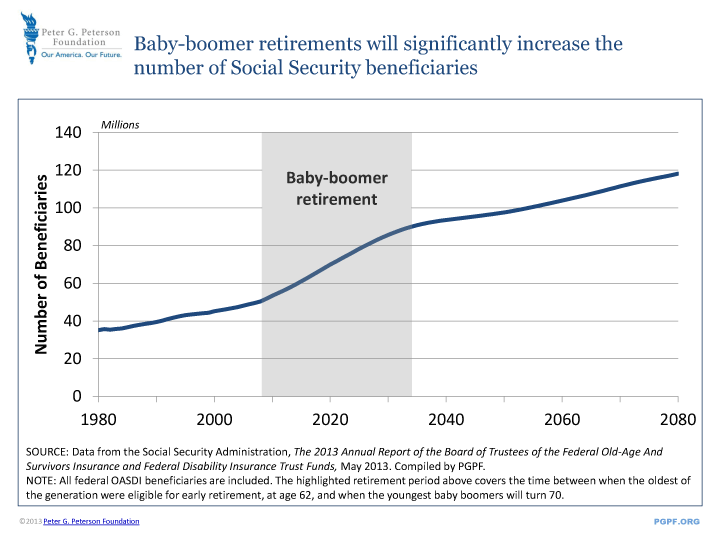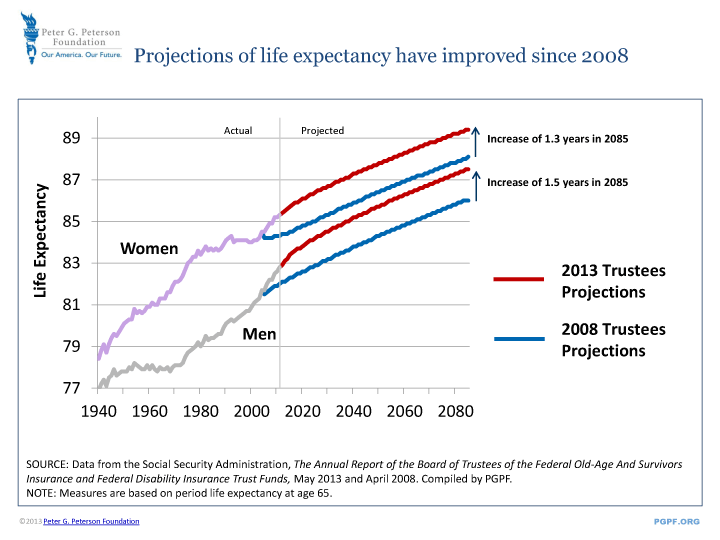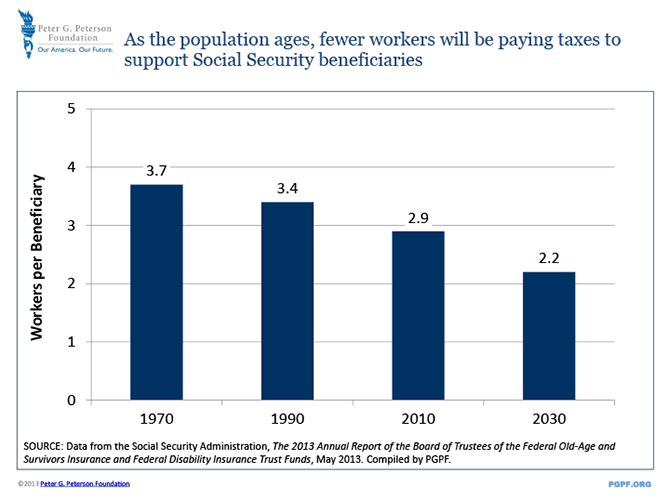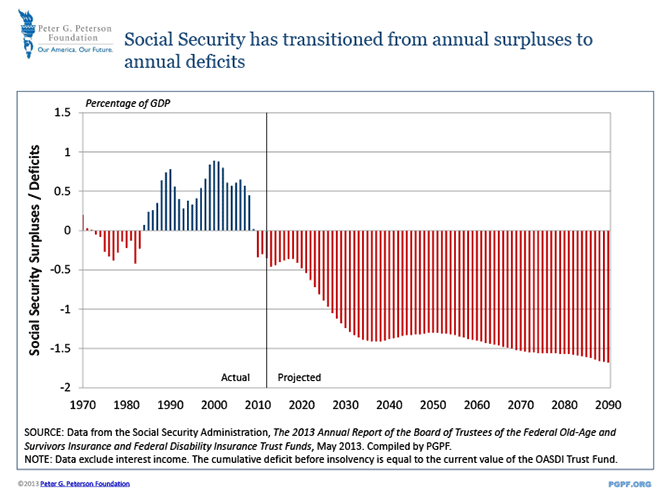You are here
The Social Security Trustees Report in Charts
Social Security is on an unsustainable financial path, and legislative changes to the program “are necessary to avoid disruptive consequences for beneficiaries and taxpayers,” according to the latest report from the Trustees. Their report highlights several financial challenges the program faces over the coming decades:
- Since 2010, Social Security has been spending more each year than it collects in taxes. In 2012, the program added $160 billion to the federal deficit. This cash-flow deficit is projected to continue through the decade, and then accelerate in the following decades.
- Within three years, the program will not be able to pay full disability benefits as scheduled under current law. If legislative action is not taken, disability benefits would have to be cut by 20 percent after 2016.
- Within twenty years, the Social Security trust fund will be exhausted. After that point in 2033, Social Security benefits would have to be cut by 23 percent unless policymakers take action.
As the following charts show, these budgetary challenges stem from the aging of the population. The retirement of the large baby boom generation will sharply push up the number of people claiming benefits each year.

Over the past several decades, longevity has significantly improved. The Trustees project a continuation of those improvements, which will significantly increase the number of years that people will be claiming benefits.

The Social Security program is largely financed through taxes paid by current workers. However, as the population ages, the ratio of workers-to-beneficiaries is projected to fall.

Social Security is already in cash-flow deficit—that is, it pays more in benefits each year than it takes in through taxes. As the population continues to age, those deficits will grow sharply.

Social Security’s long-term financial challenges will stress the federal budget as a whole. As the program’s financial condition continues to deteriorate, Social Security will increase federal budget deficits by $2.7 trillion over the next 20 years and over $12 trillion over the next 75 years unless policymakers take action.
Sustainable solutions will require bipartisan action and compromise. Policymakers will have to grapple with hard decisions on both the spending and revenue side of the program. Although some have argued that we have plenty of time to address Social Security’s challenges, the sooner reforms are enacted the less disruptive they will be. If reforms can be phased in slowly, future beneficiaries and taxpayers will be able to adjust and plan accordingly. The Trustees highlight the benefits of taking action now: “With informed discussion, creative thinking, and timely legislative action, Social Security can continue to protect future generations."
